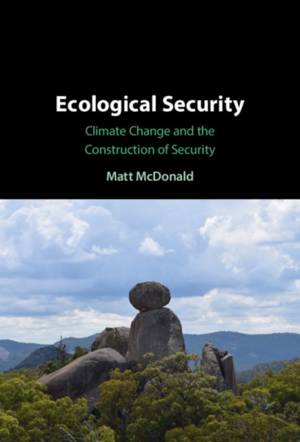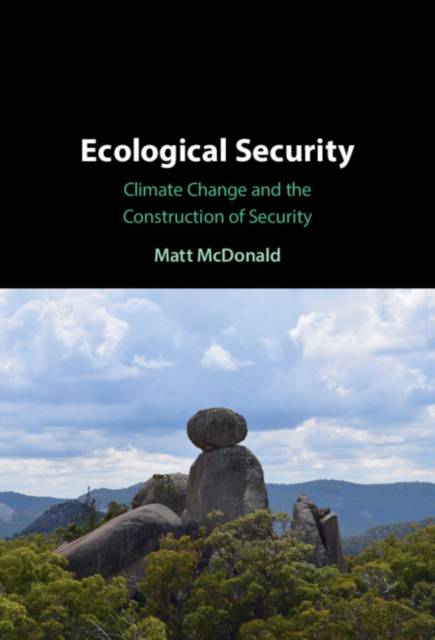
Je cadeautjes zeker op tijd in huis hebben voor de feestdagen? Kom langs in onze winkels en vind het perfecte geschenk!
- Afhalen na 1 uur in een winkel met voorraad
- Gratis thuislevering in België vanaf € 30
- Ruim aanbod met 7 miljoen producten
Je cadeautjes zeker op tijd in huis hebben voor de feestdagen? Kom langs in onze winkels en vind het perfecte geschenk!
- Afhalen na 1 uur in een winkel met voorraad
- Gratis thuislevering in België vanaf € 30
- Ruim aanbod met 7 miljoen producten
Zoeken
Ecological Security
Climate Change and the Construction of Security
Matt McDonald
Hardcover | Engels
€ 152,95
+ 305 punten
Uitvoering
Omschrijving
Climate change is increasingly recognised as a security issue. Yet this recognition belies contestation over what security means and whose security is viewed as threatened. Different accounts - here defined as discourses - of security range from those focused on national sovereignty to those emphasising the vulnerability of human populations. This book examines the ethical assumptions and implications of these 'climate security' discourses, ultimately making a case for moving beyond the protection of human institutions and collectives. Drawing on insights from political ecology, feminism and critical theory, Matt McDonald suggests the need to focus on the resilience of ecosystems themselves when approaching the climate-security relationship, orienting towards the most vulnerable across time, space and species. The book outlines the ethical assumptions and contours of ecological security before exploring how it might find purchase in contemporary political contexts. A shift in this direction could not be more urgent, given the current climate crisis.
Specificaties
Betrokkenen
- Auteur(s):
- Uitgeverij:
Inhoud
- Aantal bladzijden:
- 252
- Taal:
- Engels
Eigenschappen
- Productcode (EAN):
- 9781316519615
- Verschijningsdatum:
- 23/09/2021
- Uitvoering:
- Hardcover
- Formaat:
- Genaaid
- Afmetingen:
- 152 mm x 229 mm
- Gewicht:
- 508 g

Alleen bij Standaard Boekhandel
+ 305 punten op je klantenkaart van Standaard Boekhandel
Beoordelingen
We publiceren alleen reviews die voldoen aan de voorwaarden voor reviews. Bekijk onze voorwaarden voor reviews.









